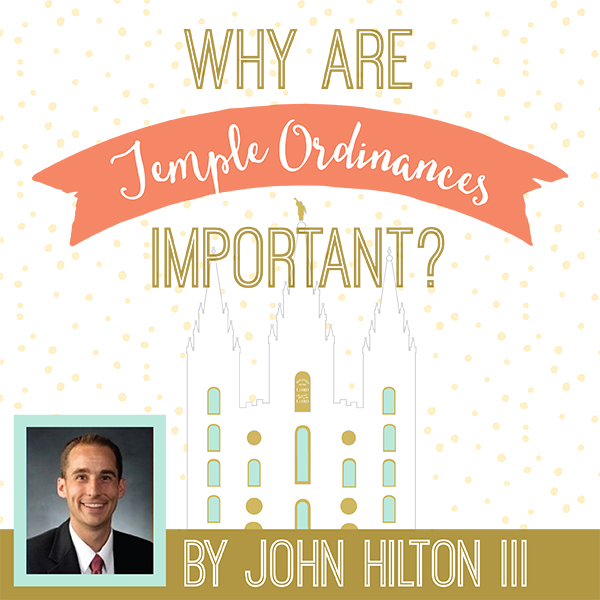Why Are Temple Ordinances Important? By John Hilton III
Why Are Temple Ordinances Important
This is such an important lesson! When teaching it, remember that President Thomas S. Monson taught, “The goal of gospel teaching . . . is not to ‘pour information’ into the minds of class members. . . . The aim is to inspire the individual to think about, feel about, and then do something about living gospel principles.” (Conference Report, Oct. 1970, p. 107, emphasis added).
As with every class what students do as a result of the lesson is vital. As you prepare to teach this lesson, prayerfully consider what you could do to help students act (by attending the temple and doing family history work in a meaningful way).
Here are three ideas for this lesson.
Idea #1
I love how “Come Follow Me” says to “Give each young woman a copy of Elder Richard G. Scott’s talk “Temple Worship: The Source of Strength and Power in Times of Need,” and ask the class to find the suggestions Elder Scott gives on how to benefit from temple attendance.” Maybe to help start this study you could give them the below graphic and ask them to find a suggestion that relates to each picture.
You could also invite students to draw a picture of additional suggestions they find. Again, I love what Come Follow Me says, “Invite them to select one or more that they will follow the next time they attend the temple.”
Idea #2
Here’s an idea that could introduce Come Follow Me’s suggestion of regarding deceased ancestors (this idea comes from the book The Big Picture). It’s something I learned from Ardeth Kapp. You could say something like this: “We all know about peer pressure. It’s when people are pressuring you to do something [make a stick figure drawing of 3 people pressuring a person to “choose the wrong.”] But peer pressure is nothing compared to ancestor pressure. You have 2 parents, 4 grandparents, 8 great-grandparents, 4096 great x10 grandparents who want you to make right choices. [make a stick figure drawing of dozens people pressuring a person to “choose the right.”] As Sister Kapp said, “Peer pressure is nothing compared to ancestor pressure.”
Idea #3
While the focus of this lesson isn’t on family history work, church leaders have clearly taught that there is a close connection between family history and temple work. Sometime during the lesson you might want to give students a copy of what Elder David A. Bednar taught in General Conference. Perhaps you could ask them to count the blessings promised by Elder Bednar.
I invite the young people of the Church to learn about and experience the Spirit of Elijah. I encourage you to study, to search out your ancestors, and to prepare yourselves to perform proxy baptisms in the house of the Lord for your kindred dead (see D&C 124:28–36). And I urge you to help other people identify their family histories.
As you respond in faith to this invitation, your hearts shall turn to the fathers. The promises made to Abraham, Isaac, and Jacob will be implanted in your hearts. Your patriarchal blessing, with its declaration of lineage, will link you to these fathers and be more meaningful to you. Your love and gratitude for your ancestors will increase. Your testimony of and conversion to the Savior will become deep and abiding. And I promise you will be protected against the intensifying influence of the adversary. As you participate in and love this holy work, you will be safeguarded in your youth and throughout your lives.
If it’s feasible, it might be a good idea to spend time in class (or have a mutual night) in which the youth get hands on practice searching for their ancestors.
——————–




